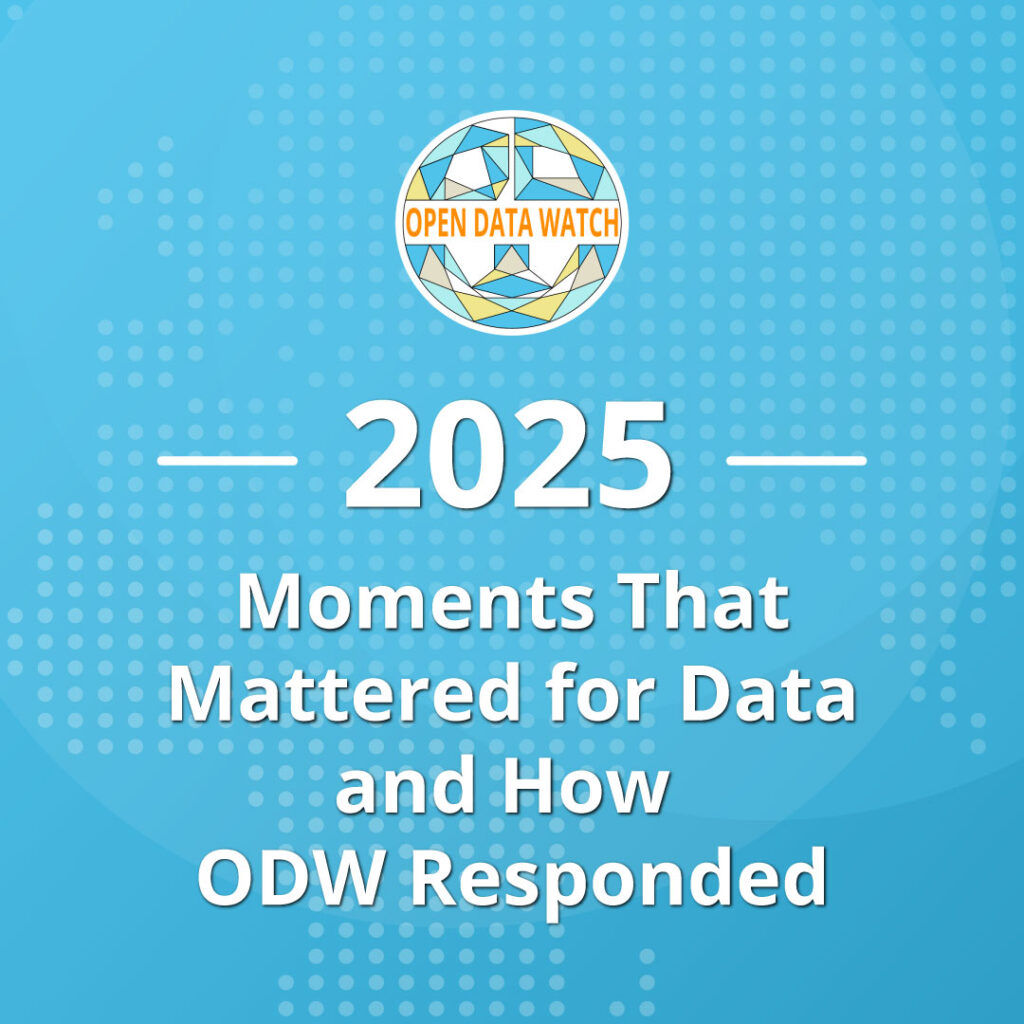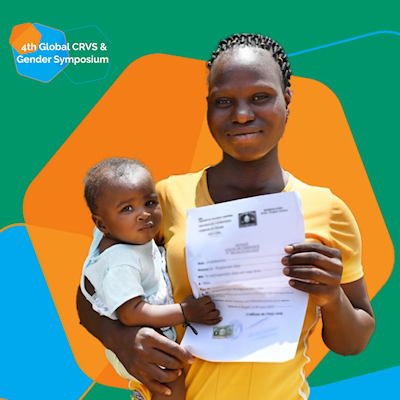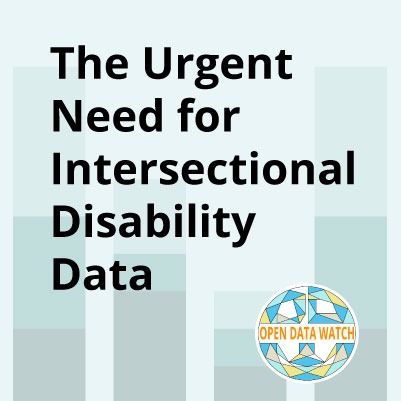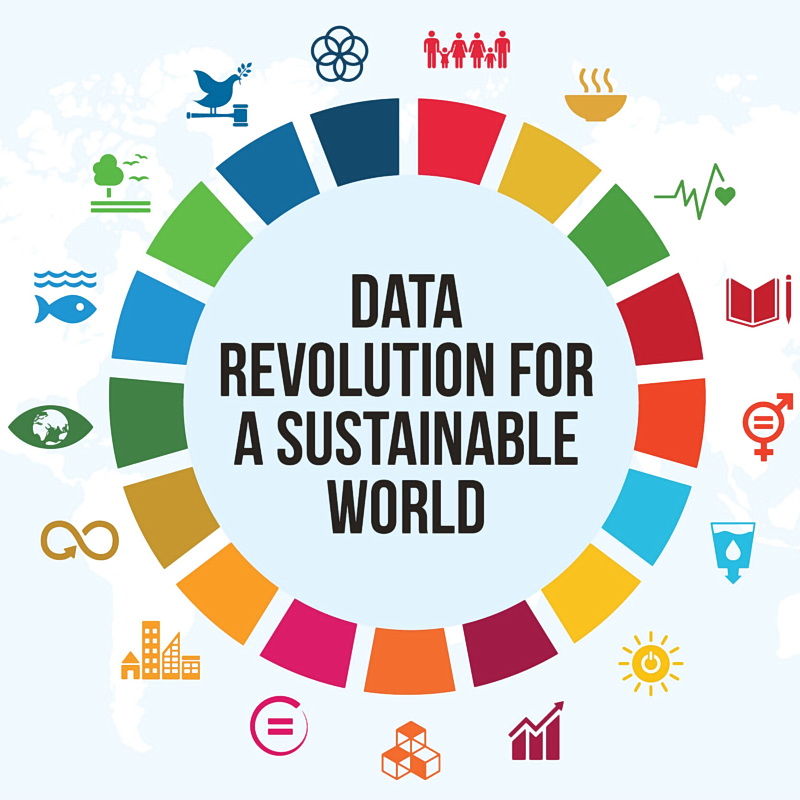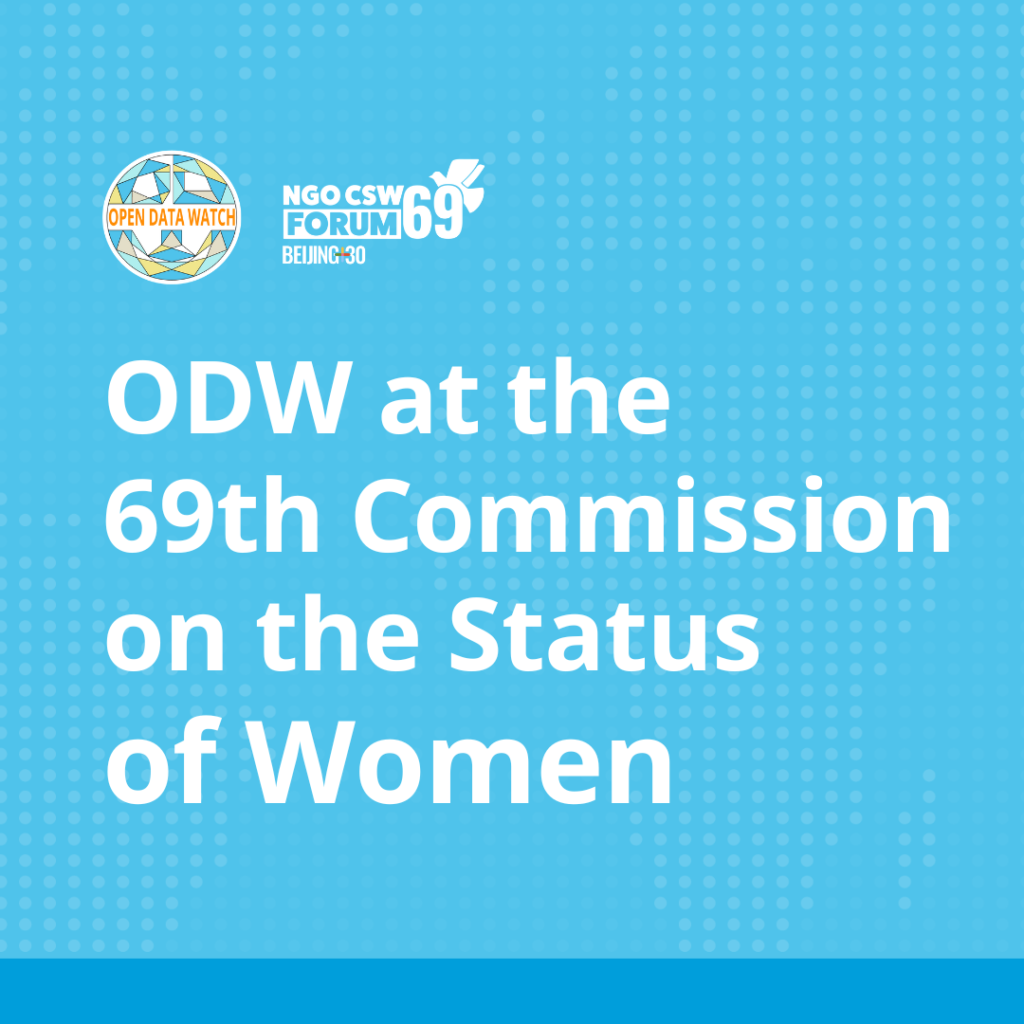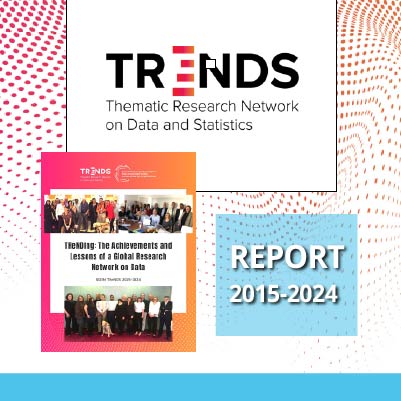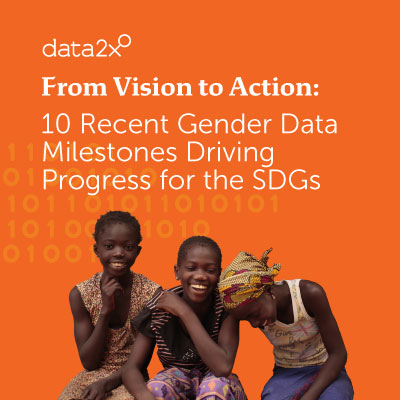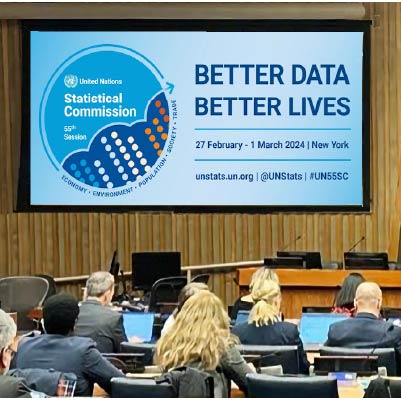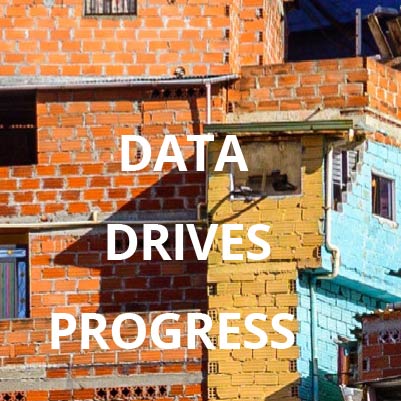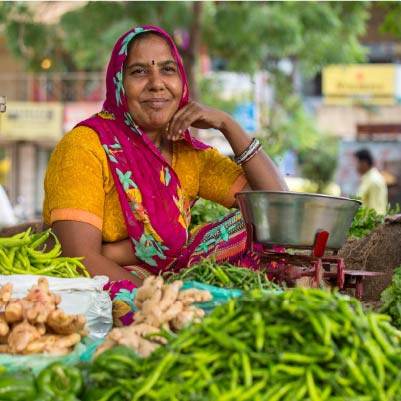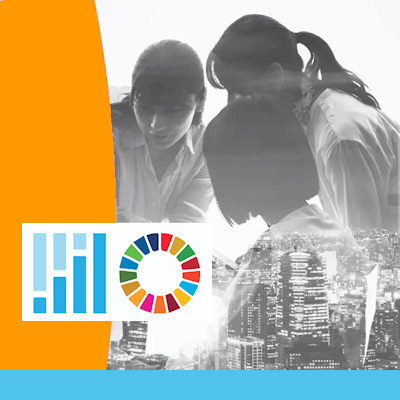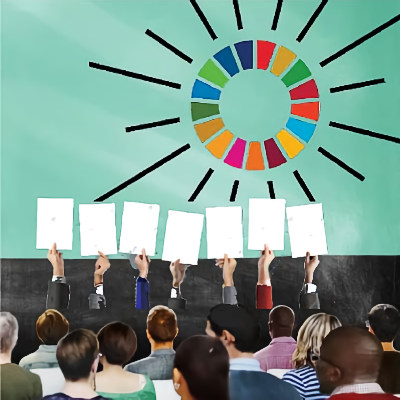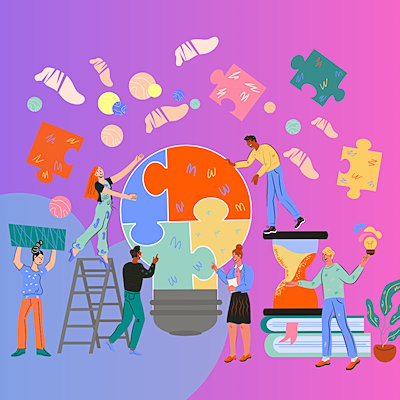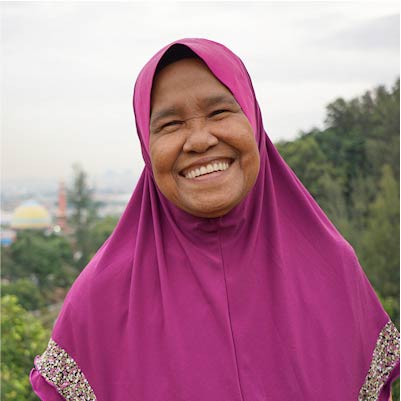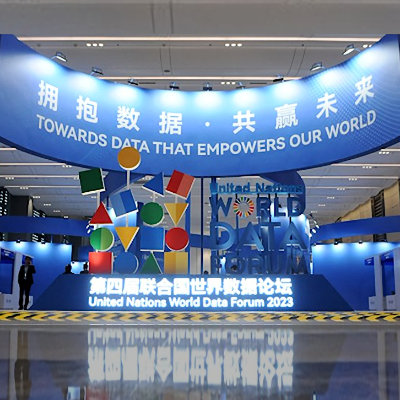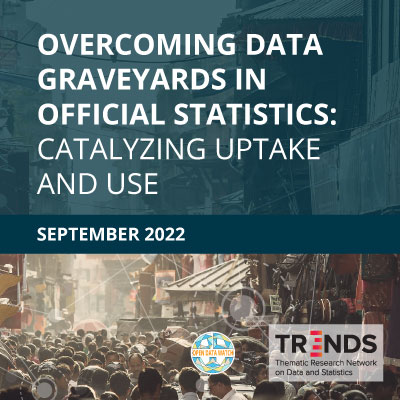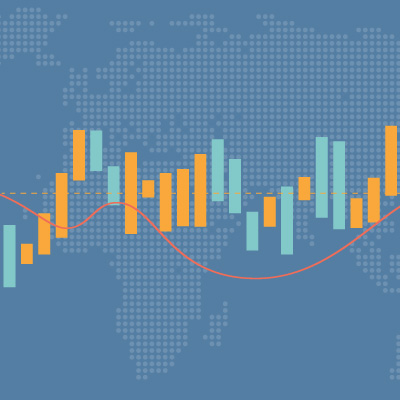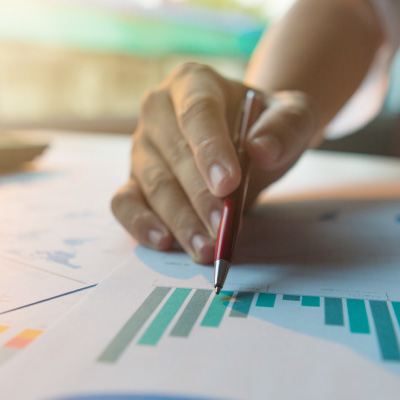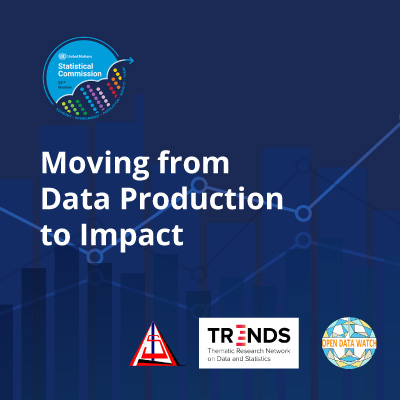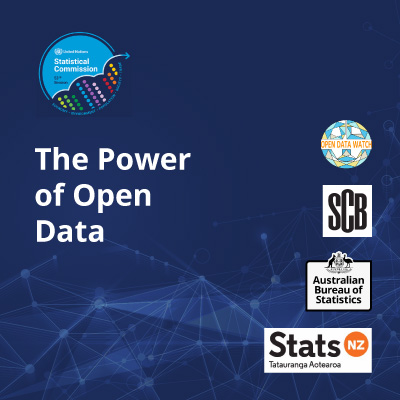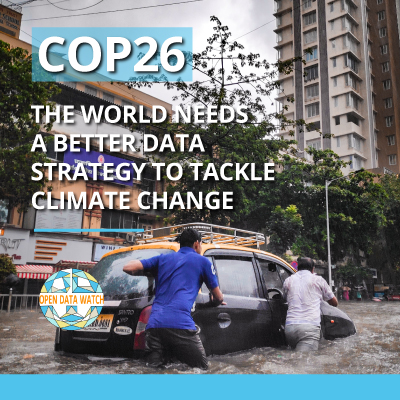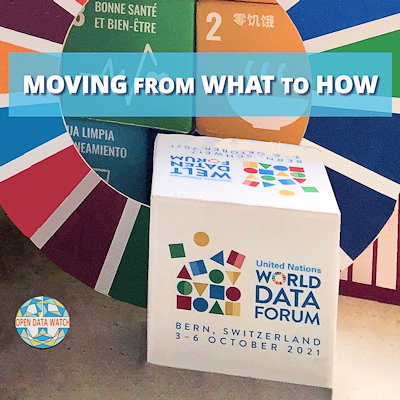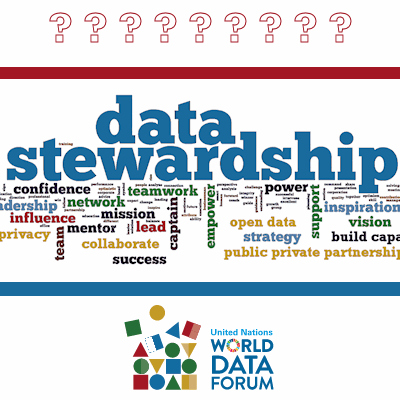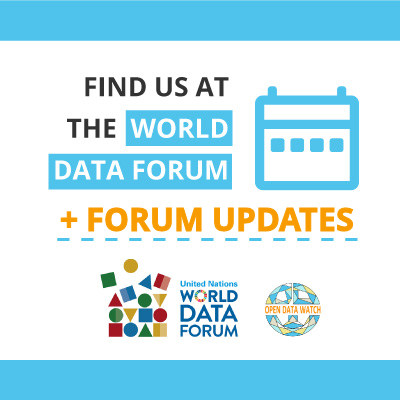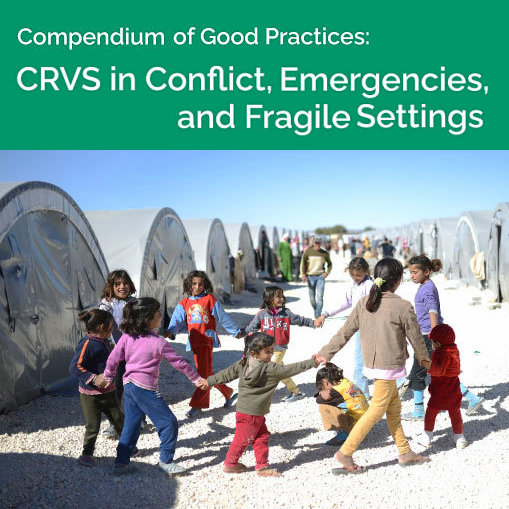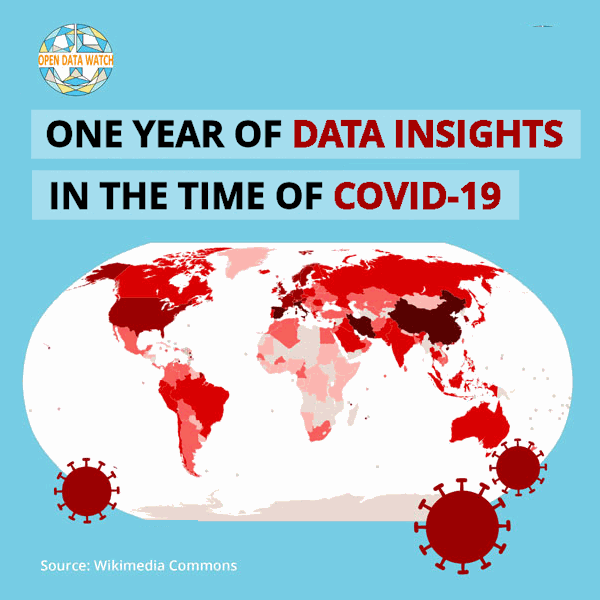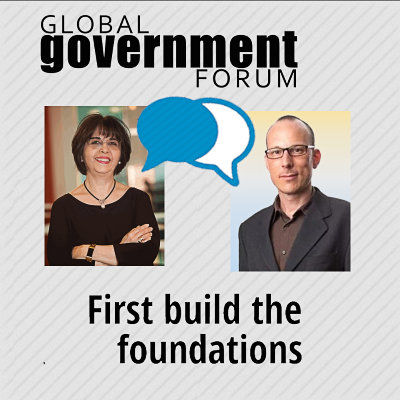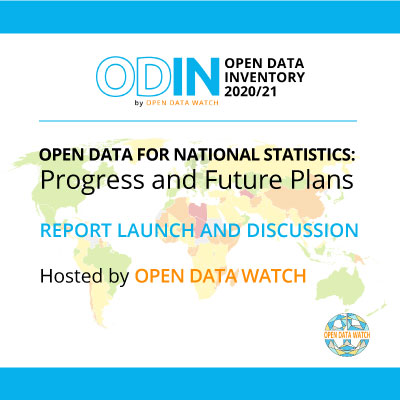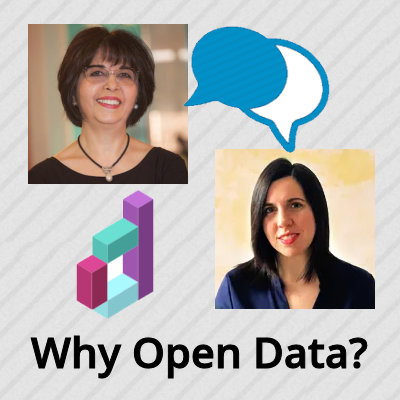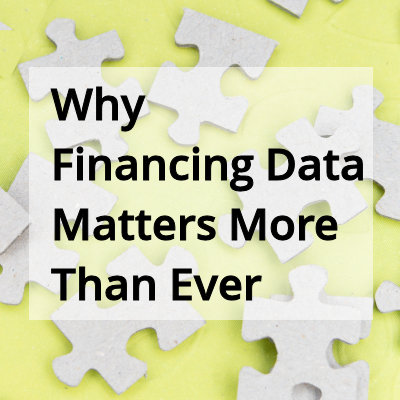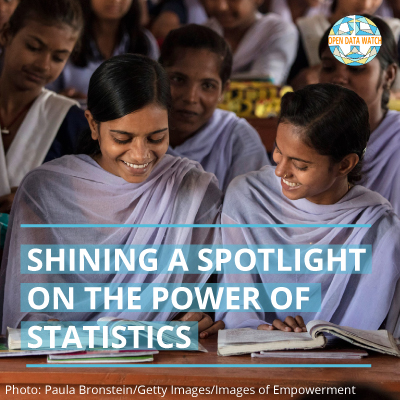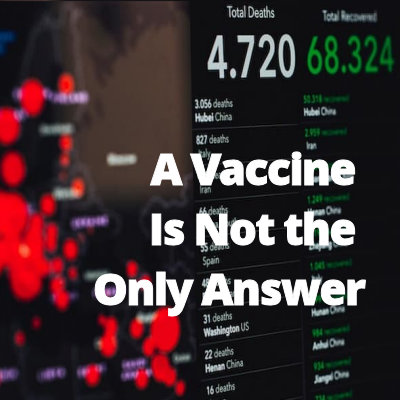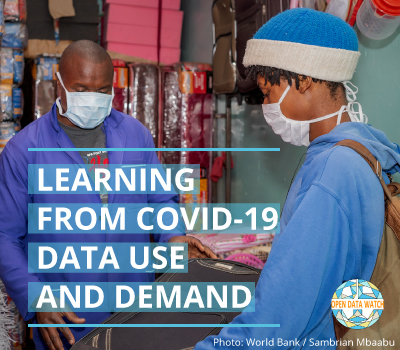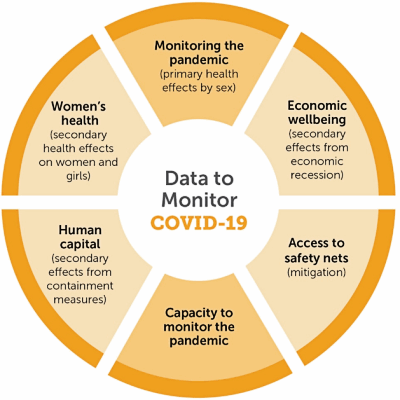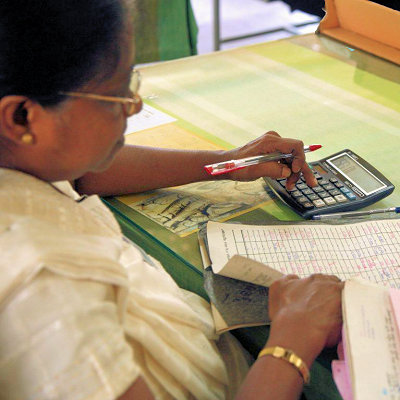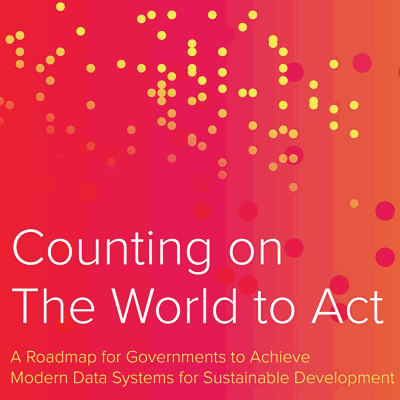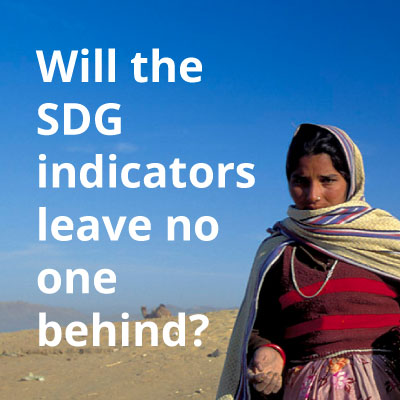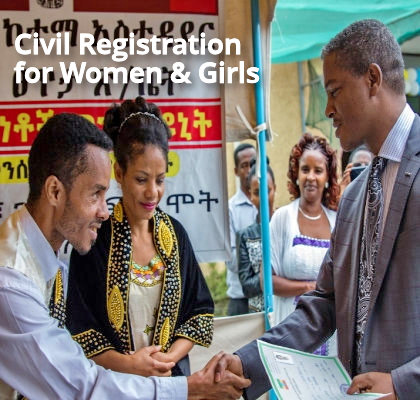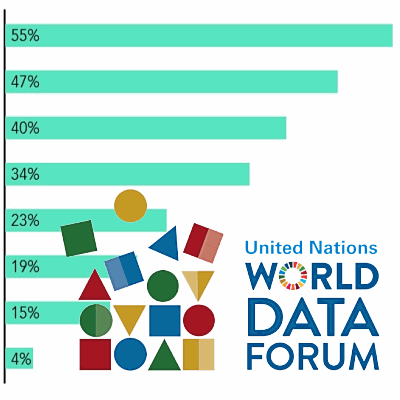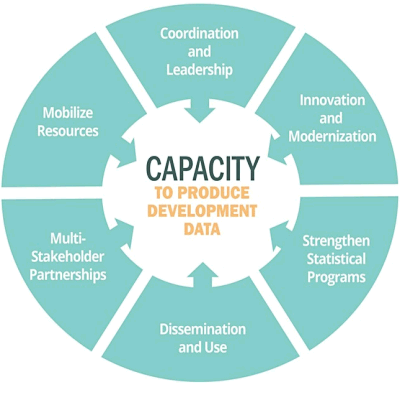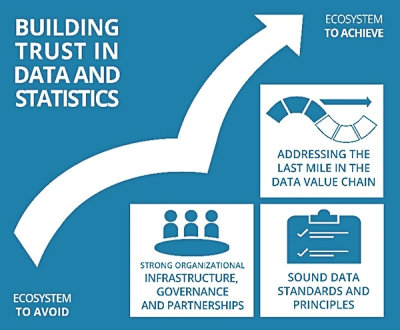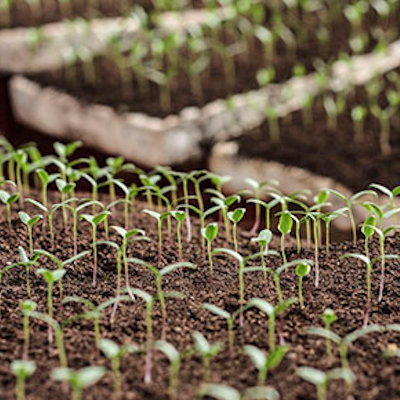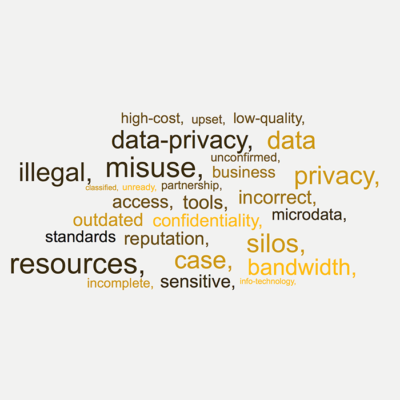BLOG
OUR WORK
TOPICS
Moments that Defined the 2025 Data Community
For the development data community, 2025 was a defining year, marked by disruption and reinvention, major funding cuts, political shifts, and unprecedented strains on data systems just when demand for data reached all-time highs.
Data Fuels Financing for Development via Broader Coalition
A new PRESS report lands at a critical moment, shining light on who finances data and statistics, on dangerous concentrations and promising opportunities, on gaps between commitments and disbursements, and on ways to bolster evidence-based advocacy for sustainable financing.
Building Bridges for Better Gender Data in Sri Lanka
Sparking conversations about how to make gender data a stronger part of national planning and decision-making, BRIDGE helps Sri Lanka measure the maturity of gender data, not just in numbers, but also in terms of coordination, policy support, data use, and capacity.
Reflections from the 4th Global CRVS and Gender Symposium
The 4th Global CRVS and Gender Symposium discussed how inclusive and gender-responsive CRVS systems can drive equitable development outcomes. In light of country experiences, participants underscored the importance of continued collaboration to secure long-term, gender-responsive financing for CRVS.
Urgent Need for Intersectional Disability Data
Intersectional disability data reveals how overlapping identities—such as disability, gender, and income—shape lived experiences and expose who is most at risk of being left behind. When communities lead the data process, it can drive more inclusive policies with lasting impact.
Citizen Data at HLPF: Advancing Inclusive Data
A workshop at the High-Level Political Forum (HLPF) examines Copenhagen Framework case studies and practical tools for citizen-generated data to strengthen official data systems.
The 7th AGSF: Strengthening Gender Data in Africa
Participants from 45 countries at the 7th Africa Gender Statistics Forum (AGSF) explored how to move from theory to action and how in practice to make gender and intersectionality data more inclusive, meaningful, and actionable.
Bridging Communities: Citizen Science Meets Citizen Data
Scholars, practitioners, and facilitators in the field of participatory sciences gathered at the 2025 Participatory Sciences Conference to discuss how to bridge citizen data and citizen science communities to pave the way for powerful new collaboration on complex social, economic, and environmental challenges.
Revisiting the Data Revolution: A Pathway to SDGs
The Sustainable Development Solutions Network (SDSN) examines and challenges some underlying assumptions of the data revolution in order to guide future investments in data towards more effective solutions.
Spotlight on the Future of Data at FfD4
In the context of rising geopolitical tensions and shrinking development cooperation programs, the Fourth International Conference on Financing for Development (FfD4) aims to chart the path for the next decade of development financing.
America Is Erasing the Data the World Needs
For evaluating trends in, for instance, economics, climate, and health, US government data have long played a vital role in guiding policy, both at home and internationally. But the production and reliability of long-standing, widely used US data sources are now under threat.
Lire en français dans Le Monde
Beyond Disaggregation: Intersectional Data for Development
While traditional data disaggregation — separating data by gender, age, or income — helps identify disparities, it often misses how multiple factors overlap. Intersectional data allows us to see the full picture.
Inclusive Data for Inclusive Progress: ODW at CSW 2025
The Commission on the Status of Women (CSW69) this year looked at how data can drive change for women and girls, emphasizing that comprehensive, accessible, and inclusive data are essential both to making and tracking progress.
Six Takeaways from the UNSC 2025
Topics at this year’s United Nations Statistical Commission (UNSC) ranged from the new System of National Accounts (SNA), to the 2030 Population and Housing Census, the new framework for Citizen Data, SDG progress, time use surveys, data financing, and the impact of AI. Six key takeaways emerged.
FfD4: Investments in Data for Effective Development Financing
National data systems have grown significantly in the last decade, but still fall short in delivering actionable insights needed by policymakers to make better financing decisions for better development outcomes.
Driving Change Through Data: ODW at the 2024 UNWDF
ODW had an active role at the recent UN World Data Forum where data experts, policymakers, civil society groups, and advocates focused on inclusive data, trust and ethics, effective partnerships, and maximizing the use and value of data in decision-making.
TReNDing: Achievements and Lessons of Global Research on Data
For a decade, TReNDS has gathered leading experts and actors to discuss the power of data to achieve progress on SDGs. It’s latest report reflects on the network’s achievements and proposes a way forward.
ODW at the 2024 World Data Forum
Aiming to spark innovative ideas, collaboration, and partnerships for better sustainable development data, this year’s World Data Forum in Medellín, Colombia, will for the first time be running concurrently with a global “Commit to Data” campaign. ODW is active in both.
Summit of the Future and Data for Development
Some critics see the outcomes of the UN’s recent “Summit of the Future” as out of touch with reality, but we believe the initiatives address key areas of importance that are worth watching.
Ten Milestones for Gender Data
Gender data is now deeply woven into SDGs with ten notable areas of achivement to close data gaps, integrate gender data into policymaking, and create lasting partnerships that improve gender equality worldwide.
Combining Digital Development and Data for Development
Among the five objectives of the Global Digital Compact, Objective 4 on “Advancing responsible and equitable international data governance” is particularly relevant to official statistics and data for development.
Uzbekistan Reinforces Open Data and Gender Data
A series of workshops in Uzbekistan focused on enhancing open data practices, with emphasis on gender-related information, to foster more inclusive decision-making.
Are Official Statistics Ready for AI?
Just as open data from official statistics are crucial for evidence-based decision-making by humans, it is vital that official data being used to train AI algorithms are AI-ready and machine-understandable with well-documented metadata..
ODIN 2024/25 New Round of Assessments Begins in June
The 7th round of the Open Data Inventory (ODIN) begins in June. As the world’s independent measure of the coverage and openness of official statistics, this year’s ODIN takes place against a backdrop of urgent need for evidence-based policies, citizen engagement, and ground rules for the AI revolution.-
Open Data Watch at the Commission on the Status of Women
The 68th Commission on the Status of Women (CSW) marked a milestone in ODW’s commitment to advancing gender equality through data on poverty alleviation, stronger institutions, and smarter financing.
Takeaways from the 2024 UN Statistical Commission
Having observed the evolution of agenda items at the UN Statistiical Commission and the expansion of the side events calendar, ODW takes a moment to reflect on key takeaways from this year’s 55th session.
Celebrating Open Data Week
Celebrated during the first week of March, Open Data Day is a perfect time to remember the five ways to to amplify data use and drive meaningful impact in people’s lives through policy guidance, data support, monitoring and assessments..
Data Drives Progress: A Call for Commitments
In anticipation of this year’s UN World Data Forum, a meeting at the 55th UN Statisitcal Commission challenges all stakeholders to turn dialogue into transformative change by making concrete commitments to accelerate action and to assure the impact of data for improving lives.
It’s Time for More Time-Use Surveys
Data on unpaid care and domestic work from time-use surveys are essential to progress on gender equality, but data collection in many countries is falling short.
Five Reflections on Policy and Partnerships
ODW’s Director of Policy and Partnerships, Francesca Perucci, reflects on recent changes, trends, challenges and the potential for working collectively to use data and statistics to drive positive change.
Gender Equality through Smart Data Investments
At the halfway point of the Sustainable Development Goals (SDGs), it’s time to shift focus from persistent challenges to promising opportunities in the realm of gender equality. It is a truly exceptional moment to invest in gender data.
Unlock the Data Dividend for the SDGs!
A Who’s-Who of leading civil society and data for development organizations, including ODW, have signed a letter that calls on world leaders to harness the power of data and unlock the data dividend for the SDGs.
Open Data for SDGs Spurs Inclusive Development
Open data began as a movement to enhance transparency, accountability, and public engagement. It’s now evolved into a potent catalyst for sustainable development. As Ai reshapes societies, open data partnerships will play a pivotal role.
Open Data Matters: Spurring Data Use and Impact in Malaysia
Allowing Malaysia to analyze, absorb, and share new information released by various parties, open data is now a core tool for improving the use, sharing, and impact of government data.
UNWDF: Advancing Data Use and Overcoming Data Graveyards
As our rate of data production grows exponentially, gaining insight into the needs of users of official statistics is key for countries and was a hot topic in World Data Forum discussions on data graveyards and institutional barriers to effective data use
Mexico Expands Data Use with Improved Governance and User Engagement
This case study looks at how laws granting autonomy to the statistical office have helped significantly advance data use in Mexico through better management and active engagement with data users.
UK Identifies User Needs to Improve Data Use
This case study looks at how data use of official statistics in the U.K. is promoted through a steadfast commitment to meeting users’ needs based on analysis of data use demands, data literacy training, and engagment with dedicated user and expert groups.
Philippines Centralizes Data Governance to Improve Data Use
This case study looks at how the Philippine Statistics Authority (PSA) successfully centralized the data governance of major national statistical agencies to ensure that datasets are better tuned to user needs and can be efficiently used for policy and planning purposes.
Colombia’s DANE Adopts Inclusive Data Approach
This case study looks at how Colombia’s National Statistics Office (DANE) captures several new data dimensions to improve the visibility of minority groups in national statistics through inclusive, disaggregated data.
Climate Change Data: Playing by the Paris Rulebook
To make progress on climate change, countries need to know how to measure their goals and spur innovation in both the collection and use of climate change data.
Report: Overcoming Data Graveyards in Official Statistics
Billions of gigabytes of data are produced daily, but valuable data often pass into “data graveyards” — lost when most needed for evidence-informed decisions on pandemics, climate change, and energy and food insecurity. This report finds best practices to improve data use and impact.
Data Portals: Steps towards an Integrated Digital Strategy
Data portals are a primary gateway for evidence-based decision-making, monitoring, fact checking, and reporting. But not all portals have the upstream data management needed to assure coverage, access and use.
The Power of Networks: Gender Data in Africa
As shown by the Gender Data Network in Africa, knowledge exchange between countries is key to addressing capacity, funding, and other challenges to have data needed to reach SDGs.
Webinar Urges NSO Data Use for Fact-Checking
This webinar identifies obstacles and opportunities of using official statistics data for fact-checking and outlines a cooperative strategy to curb the spread of misinformation.
Briefing: Better Measurement and Monitoring of Data for Development
Do the tools that measure the capacity and outputs of statistical systems answer compatible questions and provide consistent assessments? See this overiew of new comparative findings and recommendations.
Freeing Energy Data
Reliable, open energy data are vital to building green economies, adapting to climate change, and even, as in Ukraine, to track the impact of conflict. But the largest collection of energy data is locked behind a pay wall at the International Energy Agency. How to open?
Moving from Data Production to Impact: The Role of the NSO
A UN Statistical Commission event, “Moving from Data Production to Impact” discusses the role of NSOs in facilitating greater data use and avoiding “data graveyards.”
The Power of Open Data: Moving from Concept to Action
A UN Statistical Commission event, “The Power of Open Data: Moving from Concept to Action,” reports on the latest best practices for NSOs to implement open data, including “Open Data by Default,” Interoperability, and local-level data sharing that safeguards confidentiality and privacy.
Strengthening CRVS Systems to Improve Migration Policy
Migration is one of the most pressing issues of our time and innovation in data systems like civil registration and vital statistics (CRVS) can greatly benefit both migrants and policymakers.
COP26: The World Needs a Better Data Strategy to Tackle Climate Change
The most climate-vulnerable regions of the world lack the adequate environment data to combat climate change. Averting a climate crisis requires a data strategy that promotes high-quality, open, and timely data across all countries.
UN World Data Forum 2021: Moving from “What” to “How”
The UN World Data Forum 2021 was the first major opportunity since the pandemic for development data experts and users to assess the lessons and impact of COVID-19 on Sustainable Development Goals. Four main takeaways show a move from “what” to “how” data can be used to achieve SDGs.
Defining Data Stewardship
A clear definition of data stewardship can help build a common understanding about what it takes to establish a system of resilient data governance built on strong partnerships and effective safeguards to balance data sharing and data privacy.
Find ODW at the World Data Forum!
The UN World Data Forum 2021 gathers data experts and users from governments, civil society, the private sector, donors, international and regional agencies, the geospatial community, the media, academia, and professional bodies to spur data innovation and mobilize high-level support for better data for sustainable development.
Compendium of Good Practices: Harnessing CRVS in Conflict, Emergencies and Fragile Settings
This 12-paper Compendium presents research, case studies and best practices for building effective CRVS systems in conflict, emergency, and fragile contexts such as natural disasters or health emergencies like COVID-19. Watch the launch event (14 April).
A Year of Data Insights in the Time of COVID-19
The COVID-19 pandemic has brought to the world’s attention the need for accurate and timely data to guide decisions. It has been a stress test, like no other, for statistical systems around the world. One year since ODW started tracking COVID-19 data collection and use, what have we learned?
International Women’s Day: What we know and don’t know about women
International Women’s Day is a day to note the contributions of women to the economy, society, and their families. In 2021, we call on governments, civil society, and the private sector to fill gaps in our knowledge by building statistical systems that leave no woman or girl behind.
Interview: First Build the Foundations
In this interview with Matt Ross of the Global Government Forum, Shaida discusses the potential for data to have a huge impact in developing countries, but warns that many nations…
Countries Share Success Stories using ODIN
Country representatives gather to discuss the 2020/21 ODIN Open Data Inventory Annual Report and to share success stories, challenges and experiences in implementing open data to promote environmental, social and economic progress in their countries.
Podcast: DataJournalism Conversation with Shaida Badiee
This podcast by DataJournalism.com and Open Data Watch covers topics ranging from the genesis of Open Data, to monitoring tools like ODIN, to issues of transparency, susustainable development, gender equality, statistical capacity, and COVID-19.
Why financing data matters more than ever
We face a paradox: the world runs on data, but even simple statistics to guide policy-makers are often nowhere to be found. Investing in statistics today is investing in our ability to respond diligently, rapidly, and appropriately tomorrow.
Shining a Spotlight on the Power of Statistics – World Statistics Day
We rely on statistics for everything from forecasting the weather to monitoring economies and pandemics. This World Statistics Day, Open Data Watch highlights the most critical statistics from our areas of work and where we can improve.
Tracking Gender Data on COVID-19 – Blog #4
This fourth blog of the series examines what emerging measures of the direct impact of the pandemic on healthcare workers can tell us about the frontline capacity of countries and how it differs for men and women.
Tracking Gender Data on COVID-19 – Blog #3
This third blog of the series summarizes existing data on sex-disaggregated COVID-19 cases and deaths from Global Health 50/50, compares this to overall cases and deaths, and examines the shares that are sex-disaggregated by income and region.
A Vaccine is Not the Only Answer to COVID-19
The world’s inability to monitor and contain the spread of COVID-19 is costing trillions. With such losses, budgets are tightening. Prioritized spending is critical. Funds and hopes are now focused on the arrival of an effective vaccine. But, once again, that won’t be enough.
Learning from Coronavirus Data Use and Demand
Accurate, timely data during the coronavirus pandemic guides decisions on limiting transmission and allocating resources. But what are the drawbacks, merits, accessibility, and biases of coronavirus datasets, models and testing? What do we know about uptake of coronavirus data? What can we learn from changing demand for data?
Tracking Gender Data on COVID-19 – Blog #2
This second blog in the series summarizes the existing data on sex-disaggregated COVID-19 cases and deaths from Global Health 50/50 and asks how complete our picture is when compared to all reported cases and deaths.
Tracking Gender Data on COVID-19 – Blog #1
We know that the COVID-19 pandemic is affecting men and women differently and that gender roles shape pandemic responses. Now, thanks volunteer efforts via Global Health 50/50, new data are revealing the true impact of COVID-19 on men and women around the world.
Tracking the Gender Impacts of COVID-19
A review of international databases finds that the coronavirus pandemic is affecting men and women very differently and may exacerbate gender inequalities without a concerted effort to fill crucial gender data gaps.
A Long Way to Go for Data to Make a Difference
Countries have a long way to go before data begins to make a difference. The OGP Global Report: Democracy Beyond the Ballot Box synthesizes Open Government Partnership findings to provide comparable snapshots of all OGP members. It combines this with data published by respected partners, including Open Data Watch’s Open Data Inventory (ODIN), allowing readers to learn about their country’s progress in OGP and compare it to real-world performance in other selected dimensions.
Counting on the World to Act
Counting on the World to Act, published by SDSN TReNDS, is an exceptional data report covering some specific areas of data governance that have been missing from the conversation so far, including discussion of amended laws, new data officers, the digital ecosystem, and the case for investment.
Leave No One Behind: Data Disaggregation for SDGs
A central promise of the SDGs is to leave no one behind, but current indicators measuring progress don’t keep that promise. Aggregates and averages aren’t enough to know if the needs of the poorest of the poor, women, children, the elderly and other vulnerable groups are met or slip through the cracks.
Resources for Data: Transformative Opportunities?
Experts gathered recently in Washington to discuss an issue underpinning all other development issues – the gaps in data and statistics needed to implement Sustainable Developmentd Goals (SDGs). Effective policies to provide a better life for people require more and better data, but how to fund it?
Marriage & Divorce Certificates for Women’s Empowerment
When vital life events – such as births, deaths, marriages, and divorces – are systemabtically recorded in CRVS systems, they provide proof of identity and legal status that are particularly beneficial to women and girls. They also provide sex-disaggregated demographic data for better policies and planning.
World Data Forum: Catalyzing the Use of Official Statistics
A two-part research project on NSO data use was presented at the World Data Forum. One part seeks to understand perceptions of data use through snap polls. The other looks at potential ways to measure actual data use.
World Data Forum Preview: Catalyzing the Use & Impact of Official Statistics for SDGs
A new collaborative research study to be presented to the October 2018 World Data Forum in Dubai finds potential ways to innovate and modernize national statistical systems to catalyze the use and impact of official statistics for sustainable development.
Understanding the Value & Impact of Data
Why do investments in data remain low, despite the often cited need for high-quality data to guide policies and promote evidence-based decision making for sustainable development?
Once upon a Statistic: Gender Data Impact Stories
The Gender Data Impact Project is gathering stories about the lives of girls and women that demonstrate a strong link between data and outcome, about the pioneers who began the conversation on the importance of unbiased gender data and about the brave champions who continue the work today.
Building Trust in Data and Statistics
In an era of “fake news” and “alternative facts,” the UN World Data Forum 2018 takes on a topic of particular relevance: building trust in data and statistics throughout the data value chain.
Catalyzing the USE and IMPACT of Official Statistics
A new ODW project with AidData and PARIS21 seeks to collect information on the barriers faced by National Statistical Offices as they respond to increased demands to produce more and better statistics and increase the use and impact of those statistics.
Making Progress towards Sustainable Agriculture
Food and agriculture are at the heart of the 2030 Agenda, spanning all 17 goals and reflected in 53 indicators, but what are the key elements to measure and across what dimensions? Must data be collected at the farm level?
Overcoming Open Data Worries
In the last five years, many national governments have announced open data initiatives, and states and cities have joined in. Releasing data openly should make governments more credible.


